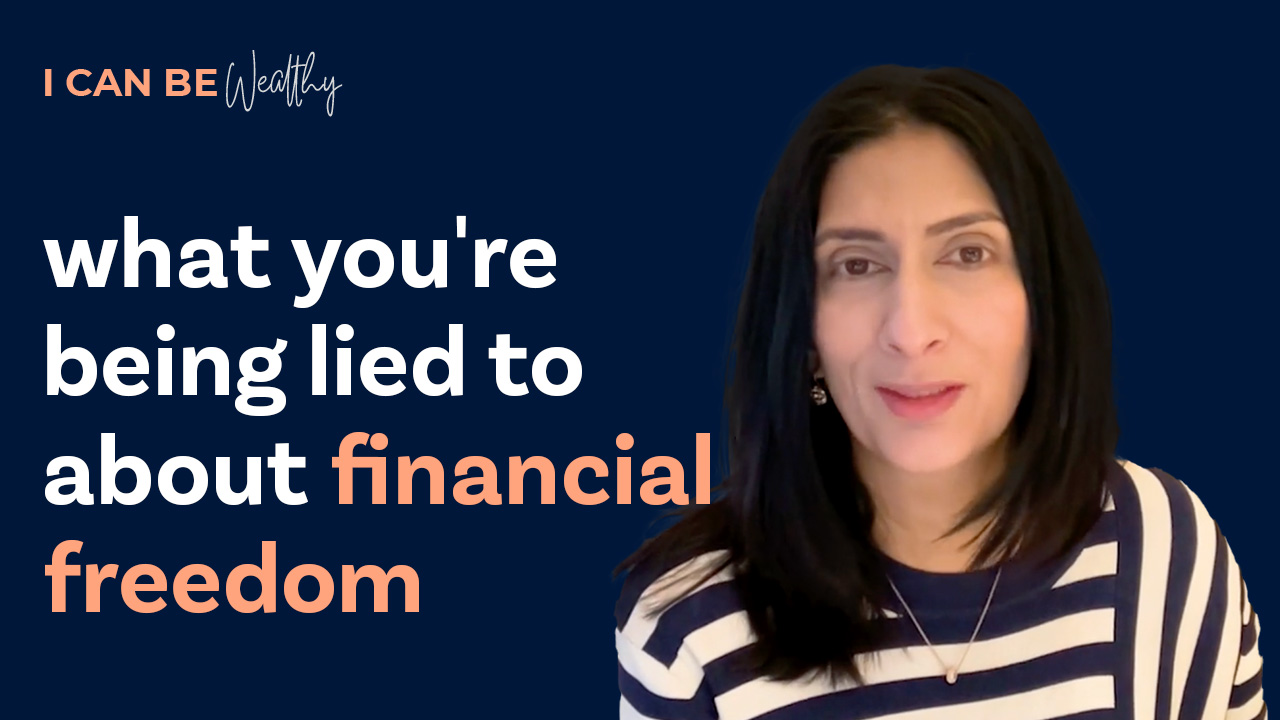What is the True Inflation Rate?
Do we actually know what is the actual inflation rate?
For example, in the United States, the reported rate of inflation is approximately 7-8%.according to some metrics, this may be closer to 15%.
Frankly, 15% feels pretty accurate to me right now.
One of the things I’ve witnessed over the last couple of years is that economists are pulling holes in some of the economic commentary coming out of the government, which, unfortunately, is designed to prevent people from panicking.
So there’s a certain level of inflation that they know that people want to hear about.
When it comes to measuring things like inflation, they want to see it at a certain level, which is between 2.5% – 3% What happens is that the basket of goods that they use to measure inflation sometimes gets tweaked or changed to manufacture the correct numbers.
Several people are going back in history and trying to measure inflation based on a single basket of goods, therefore recognising that inflation is possibly higher than what we hear about in the media.
What Are the Implications of This?
The question is, what are the implications of this? I think some people will lose due to this high inflation, but there are some winners.
Consumers, experience minimal benefit from inflation. However, investors can enjoy a boost if they hold assets in markets affected by inflation.
For example, if energy costs continue to rise, investors who own equities in energy businesses may see their stock values rise.
From a business perspective, some businesses will reap the rewards of inflation because they can charge more for their products, due to increased demand for their goods or services.
Suppose the economy is performing relatively well and housing demand is high. In that case, people like builders can charge higher prices for selling homes, and we’ve witnessed some of that in our local market over the last couple of years.
In other words, inflation can give businesses pricing power to increase their profit margins. If their profit margins are rising, it means that what they’re charging for their products is growing faster than the increase in production costs.
This would be true for some businesses in the economy right now.
There are plenty of business owners that are finding it a tricky game to price their products due to rising inflation.
Most companies will be hurt by inflation due to surging production costs, and if they’re unable to pass those higher costs onto consumers, they’re also going to be floundering.
The government has a couple of tools to help keep inflation low. We’ve already seen evidence of governments starting to tinker with these levers.
- They can implement wage and price controls. However, I think governments are pretty reluctant to do that because it leads to job losses and pushes us into a recession.
- They can use monetary policy, reduce the money supply, and alter interest rates.
- These create a very complex cocktail when discussing what will happen over the next 12 to 24 months.
More than ever, be careful about what you consume and be mindful that nobody, and I mean nobody, can predict the future.
So when you are hearing, reading, and listening to opinions about what will happen in the future, you need to be pulling back from that and applying an educated element of probability to what people are saying as much as possible.
Keypoint #1: Don’t Freak Out
Most people are interested in how you should be thinking about and tackling this issue of inflation as an investor.
I’ve got five key points I want to make to give you a good cross-section of thinking and action.
Don’t freak out.
One of the things that we forget about, particularly when we’re in a crisis, (such as high inflationary environments, pandemics, and recessions), is that these are all just natural parts of market cycles. You need to distinguish between being an investor and a trader.
We need to remind ourselves that we are playing long games. We want to focus on assets likely to perform and rise with inflation.
It’s very easy to panic when something huge happens.
At the beginning of 2020, when the pandemic first hit and it seemed like the sky was falling, I made a couple of decisions around the allocation of my super. I pulled out of some of the shares that my superfund was holding in the market and moved to a more liquid position.
This meant that I realised a loss, and we decided to go back in again, we realised, we should have just sat in and ridden that curve.
My mentors have guided me on decisions and thinking that helped me shape my decision-making in the past.
We want to focus on the long game and recognise many fluctuations in the market while playing that game.
It doesn’t mean we don’t need to adapt our strategy to a changing market.
It doesn’t mean we pick one way to achieve our financial goals and stick with it doggedly.
We want to recognise that market ups and downs are natural and that we are investors, not traders.
We are not trying to predict the direction of the market. We are not trying to gamble or make speculative investment decisions. We are playing the long game.
Keypoint #2: Defence vs. Offence
When it comes to investing, we want to distinguish between defence and offence because there’s a real tension between holding cash and needing to invest it.
When things are volatile, there is a natural tendency to keep better cash reserves.
As the complexity of your portfolio rises, it becomes more important to be mindful of what level of cash reserves makes sense.
You want to have enough cash to carry you through.
I spoke to a trusted advisor a couple of days ago who specialises in one particular alternative strategy that gives 15% to 20% net returns per annum.
He emphasised the fact that nothing is infallible and bulletproof, so he decided to carry cash reserves that would cover all operating costs and salaries for two years.
If everything hit the skids, they would have more than enough cash in the bank.
It’s a very conservative move, but I understand that your sensitivity to potential threats is heightened when you are an astute investor.
Many self-professed experts argue for continuing to minimise cash reserves
“Keep a few cash reserves to carry you for 3 to 4 months, but invest everything else because otherwise, the opportunity cost of cash sitting around is too great.”
In this volatile environment, while your purchasing power is falling, there are turbulent environmental factors that must also be considered when thinking about cash reserves.
I’m personally holding more cash to ensure that I have adequate cash reserves in case something goes sideways.
Keep 3 to 4 months’ worth of living expenses in your back pocket in a flat or bullish environment for some unexpected expenses.
You’ve got to ask yourself:
- What are the vulnerabilities in my income stream?
- How likely is it that there could be some disconnect in your income?
- Given the cost of my life and investments, how will I manage that if things don’t go according to plan?
One of my members asked one of our advisors about what’s right and wrong.
It’s a tricky question to answer because people are looking for formulaic answers like, “Oh, you should have eight months of living expenses, not four.”
But what is essential right now is that you’ve got some cushion to fall back on.
Let go more of your offence and focus on your defence, especially if you have a large volume of investments.
If you’re an early investor still hunting for opportunities, you could do just as well with less cash.
It’s about where you are on your journey, your mindset, and your sleep-at-night-factor.
I’d add that inflation has the same effect on liquid assets like cash as it does on any other investment
It’s just that liquid assets tend to appreciate and value less over time, so they are more vulnerable to the negative impacts of inflation.
Higher inflation rates tend to cause individuals and businesses to hold fewer liquid assets because they’re worried about the erosion of inflation.
Keypoint #3: Don’t Predict the Future
Many investors right now are trying to predict the future from the perspective of timing their investments.
They will postpone their investment decision-making, anticipating that market stress will rise to provide them with the power to negotiate a higher price on certain assets.
One person that comes to mind is my good friend a few years ago.
He was a very conservative financial planner who decided to postpone the decision to purchase his principal place of residence
He thought that the market was going to pull back further. But what ended up happening was that we had a mini boom inside of a bursting bubble.
When he decided to hold off on that decision, the market surged due to another left-of-field issue that no one could have predicted.
If you are someone who needs to enter the market because you’ve got the cash available, focus on buying good assets at a reasonable price today that are likely to perform well over the long term.
Trying to predict the future is a challenging game.
There is always a level of speculation in other styles of investing compared to alternative investments, wherein you have a stable cash flow and do less speculation.
This idea of staying out of the market because you are trying to wait or hold out for a better price is a personal decision.
I’m not criticising it by saying it’s right or wrong. I’m just trying to point out that we don’t know which way the market will move.
Keypoint #4: Cash Control is King
In an environment where inflation is rising, you need to monitor your spending, identify the bleeds, and be aware of your net cash position.
Don’t be like most people who have no idea what it costs for them to run the baseline level of their lifestyle
If you don’t know your number, you will put yourself in a difficult situation that will impact your investing decisions.
Many of the investors I’ve worked with over the last 12 years rely on excess income from their primary income to fuel their investing.
Let’s have a look at this example.
Let’s assume your baseline living costs are $100,000.
Suddenly, the amount required to maintain the same level of lifestyle you have now becomes $130,000.
If your goal was to set aside $50,000 a year, now that could only become $10,000 to $20,000.
Be mindful not only of your cash reserves for investing but also of your cash for emergencies, so you don’t fall short.
If you haven’t already done the exercise, you need to analyse what it costs in today’s money for you to run your household.
You need to have a high degree of control over the cash flow coming from your investments and the cost of what it costs to run your household.
Many people don’t know their numbers. Stewardship is a crucial pillar to becoming a successful investor.
Keypoint #5: What Should You be Investing in?
We’re starting to see the real estate market cool quickly. So what is it that investors should be trying to hold or buy?
You need to focus on investments with returns equal to or greater than inflation.
Unfortunately, many investors right now are carrying underperforming investments. You can tolerate this while it is a booming market.
But now is the time to focus on the actions that will reduce risk and take your portfolio to the next level.
If you are in a fortunate position, you might want to have cash reserves set aside for investing.
Assume the worst-case scenario about what the inflation rate is, and aim for investments that will give you at least that rate of return.
Otherwise, you’re losing money and putting a big dent in your hard-earned gains over the last few years.
If the market were to tank in the next 6-12 months due to varying economic factors, don’t panic.
The growth we’ve had over the last two years has averaged 20%, or even more.
A drop of 20% in property values would be just a pullback to what might have otherwise been steady growth over those two years.
If you’re new to the market, this could be painful. But you’ve got to remind yourself that you’re playing the long game.
It might be better to ask yourself the following questions:
- Can I afford to carry these investments through the turbulence which lies ahead?
- Do I have enough cash reserves?
- Am I in full control of the cash and capital?
- Do I have a good understanding of my living costs?
- Do I have the capacity to keep adequate cash reserves and continue to fuel my investing?
- Do I need to allow my investments to marinate and grow while I get myself on an even keel?
Final Thoughts
Many investors are panicking right now because of inflation.
I encourage you to temper your emotions and remain dispassionate about continuing to protect and grow your portfolio.
It’s because when this market cycle changes, you’ll be in a much better position to take advantage of future opportunities.
We didn’t talk much about alternative investments today. But I’d like to emphasise that this asset class delivers a reliable income stream, which is essential during volatile periods of the market.
Many people are attracted to alternative investments because of their desire to build passive income.
But let’s not forget that it’s not only a mechanism for achieving financial freedom sooner. It’s also significant protection in uncertain times.
If you’re a business owner feeling frustrated that despite doing everything right in the property investing playbook and you’re no closer to financial freedom, then head over to www.inkosiwealth.com to learn more about how you can use alternative investments to catapult your investing income and blend strategies to shave decades off your timeline to financial freedom
If you’re interested in understanding how to create wealth through alternative strategies, please check out my programs, where I help you catapult your investment income and blend strategies to shave decades off your timeline to financial freedom.
Or, you’re welcome to get in touch today, book a call with me, and I would be happy to talk you through it – no obligation!









